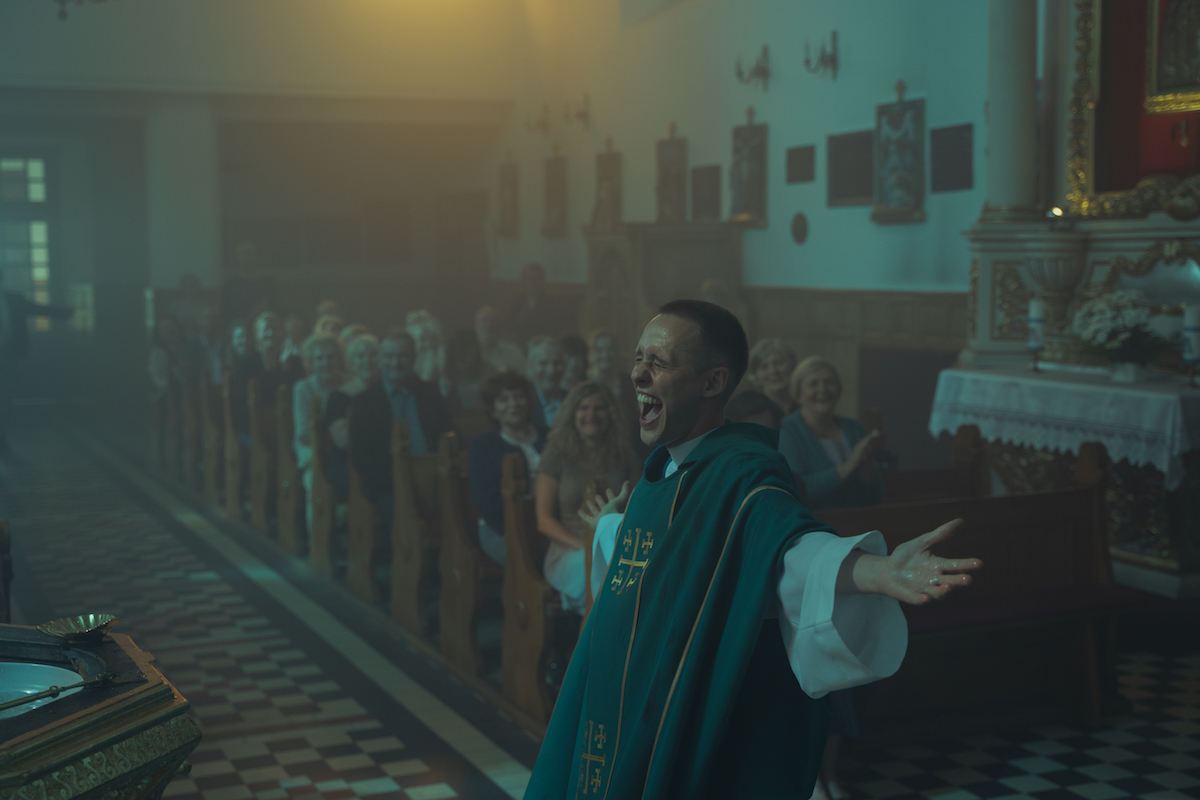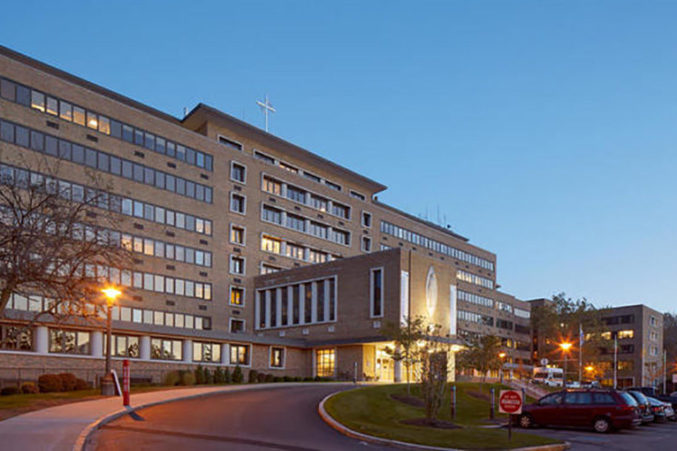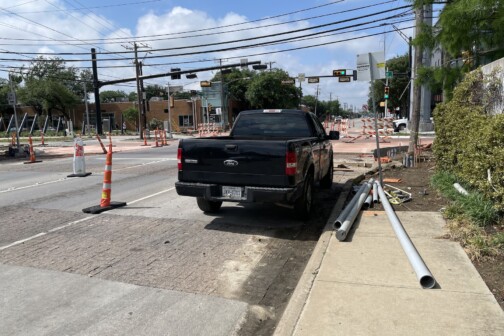Time present and time past / Are both perhaps present in time future, / And time future contained in time past. / If all time is eternally present / All time is unredeemable.
So starts T. S. Eliot’s poem Four Quartets, presenting the idea that the future preserves the past as the past informs the future. Where does that leave the present? Everywhere and nowhere, stuck between the deciding and the decided. The present, wedged between a decided past and a decided future, is compacted to a stale and worthless fixity.
Corpus Christi, opening Friday at the Angelika Film Center, explores this exact predicament. Directed by Jan Komasa, and filmed in a cold, desaturated palate, it tells the story of Daniel, a juvenile offender in Poland who wants to be priest but can’t be, because, well, he robbed stores, did drugs, and accidentally killed a man in a brawl.
Released on parole and sent to work in a sawmill, he flees truant to a nearby town where he dons the cassock, introduces himself as Father Tomasz, then assumes the parish priesthood for the vicar, who requires medical treatment elsewhere. Nearly overwhelmed by this serendipity, Daniel soon finds himself embroiled in a mysterious tragedy that shakes the town and threatens to ruin everyone involved, including him.
The irony is thick. Daniel must delete his own past to become a priest and realize his calling—but he must discover the town’s devastating past to bring healing and fulfill his calling. It’s not easy. The town has busied itself burying and forgetting “the tragedy,” a head-on automobile collision which killed six young people and one man. Still, they spend every morning praying before their shrine. Moreover, they terrorize the widow of the man (whom they call “the whore” and “the murderer,” respectively). No one really knows, however, how the accident happened.
This state of affairs, coupled with his own guilt, prompts Daniel to deliver the following sermon: “I am a murderer…I killed. I killed in my thoughts. I killed in what I failed to do. I killed in what I did.” Which, of course, is true. This recalls another sermon, one delivered by the juvenile detention center’s priest, Father Tomasz: “We’re here to remember something important. Remember and keep it in memory. Each of us is the priest of Christ. Me, you, each and every one of you.” It raises the question of power. If everyone’s a priest and everyone’s a murderer—why are priests, priests, and Daniel, a murderer?
Daniel’s effectiveness amidst the flock makes that question especially pressing. It’s a shame that those whom he baptizes have no assurance of salvation because, well, he’s a fake priest. Yet, the longer Daniel’s fraudulent tenure runs, the larger the congregation becomes. He knows what to say. In matters of the heart, it’s not the person who commands their will be done, or cites God’s will, that earns love, as Daniel’s paramour Eliza sings; it’s the person who asks questions, pursues understanding, and offers sympathy. Daniel does the latter.
It’s not clear how much of Daniel’s sympathy flows from his kind heart and clerical calling, and how much stems from a desire to be understood, loved, and forgiven.
“You know what we’re good at? Giving up on people. Pointing the finger at them,” he preaches. “‘Forgive’ doesn’t mean ‘forget.’ It doesn’t mean ‘pretend nothing happened.’ ‘Forgive’ means ‘love.’ Love someone despite their guilt. No matter what the guilt is.”
But Daniel can’t be loved or forgiven, really–because Father Tomasz-Daniel and the real Daniel cannot coexist.
“I’m not here to pray mechanically. And I hope you’re not here, either, just to get it done with. You don’t have to stay here. We can go outside,” the original Father Tomasz preaches at the movie’s opening. The irony, of course, is that they cannot–they’re in juvie. At heart, Corpus Christi is about Daniel’s desperate bid to escape his “eternally present” past mistakes and future prospects–or, rather, lack thereof. It’s about his gamble to redeem himself. The film asks the question: Is it possible to create a new identity when the past bars us from the very future we’re moving toward?






